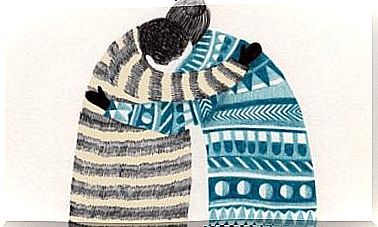The Fun Theory: Reward Instead Of Punishment

Until not so long ago, we lived in a world where people believed that punishment should be part of education. In school, students were disciplined until they learned to discipline themselves. However, we have now largely turned away from this notion. New theories like the fun theory have shown that there are much better methods.
Still, we do not want to deny that people are born with highly selfish behavior. Gradually we have to learn to break away from the idea that we are the center of the world and that all our desires will come true. Only in this way are we able to live in a society.
The fun theory is that people are more likely to do things that they find “annoying” if they have a fun aspect in them. In other words, a positive incentive can motivate people to adhere to certain rules or to do certain things that are beneficial to society.

The origins of the fun theory
The fun theory emerged in 2001. However, it was not developed in a scientific environment. The automobile manufacturer Volkswagen sponsored an experiment. With this campaign, a mixture of marketing and corporate social responsibility, the automotive giant wanted to prove that it is possible to bring about social and individual change as long as incentives are in place.
So Volkswagen released its “Fun Theory” to inspire people to lead fuller lives. In addition , of course, a positive image for the VW brand should also be created. Various social experiments were also carried out for this campaign to observe people’s reactions.
Every experiment presented people with a dilemma. They each had two options: the first involved routine and convenience, and the other required some effort. In addition, the second option also promised an extraordinary and entertaining experience.
The first experiment
Although the first social experiment was very simple, it was still very instructive. It was carried out in a very busy place: the busiest metro station in Sweden. On one side was an escalator. There was a normal flight of stairs on the other side. The question to be explored: what can be done to make people use the normal staircase instead of the escalator?
The project managers had a funny answer to this question. They invented the so-called “piano staircase”. For this, the steps of the stairs were simply painted like piano keys. In addition, each step made a sound as soon as someone stepped on the step. It was like you were actually playing a musical instrument.
The results were also surprising. Usually 95% of people used the escalator to get onto the street. But after the piano staircase was completed, 66% of people decided to use the normal staircase. In addition, they seemed to be enjoying doing this!

More experiments on fun theory
The second experiment that VW carried out to test the fun theory was even more successful than the first. Many people throw their trash on the floor without even thinking about it. The second experiment was planned against this background. This was also carried out in Stockholm (Sweden).
For this purpose, some rubbish bins were set up, which were equipped with special sensors. Every time someone threw something in the garbage can, there was a noise. This sounded just like in the cartoons when someone falls off a cliff. People thought it was very funny and some couldn’t stop throwing trash in the buckets. They even picked up the garbage from the floor to dispose of.
The amount of waste collected doubled in just one day . This experiment also proved that the fun theory can work in some cases. However, so far it has only been studied as a marketing tool for companies.
The question now arises whether this theory can also work with larger problems. As we mentioned earlier, we’re not sure that fun theory can actually produce lasting behavioral changes. There is not yet enough data available to make well-founded statements about this.
Even so, it became clear that having fun can get people to do certain things. Novelty and fun are powerful enough incentives to make people want to improve.









